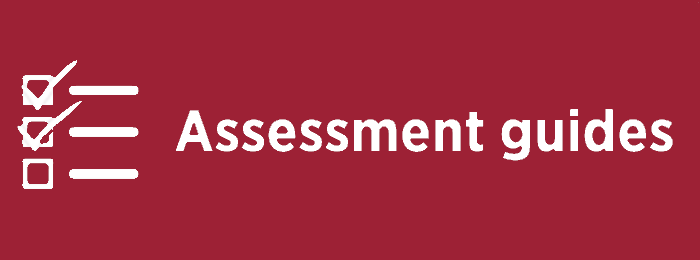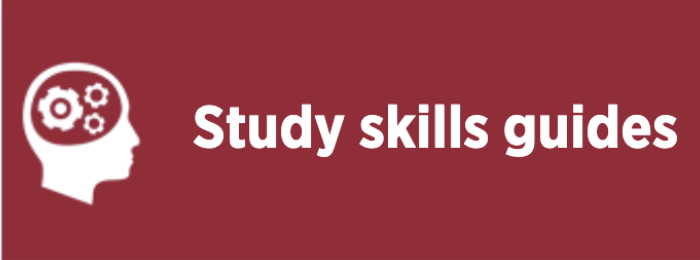Academic integrity FAQs
If you have a question about academic integrity, check the FAQs below and see if it's answered there. If not, you can contact Library Information Central (opens in a new window) or drop into a campus library and ask a librarian.
Q: A student in the year ahead of me offered to sell me an assignment answer. Would it be OK to change it a bit and then submit it as my answer this year?
A: There is no situation in which it would be acceptable to buy or be given an assignment answer from a fellow student. University assessments are designed to develop and assess your skills, so you need to do the work in order to learn and show what you have learnt.
Q: I'm stressing about deadlines and I'm considering buying an essay online and submitting that as my assignment – the essay website says it's not plagiarism if I do that. Is that right?
A: The essay website just wants to take your money. They don't care if you fail the assignment or have a student misconduct finding added to your record.
Buying an assignment answer and submitting parts of it or all of it as your own work is serious academic misconduct. This is never acceptable!
Save your money and invest the time and effort in yourself instead. Do the research and writing work yourself to demonstrate your learning. It’s better to get a low mark but learn something from doing the assignment, than to get a higher mark and not have learnt anything.
If get stuck, ask a Study Smart Officer for help to get back on track.
Q: My friend is studying the same course as me, but she's really struggling this semester. She asked me to sit with her while she does this week's quiz, in case she picks the wrong answers. I know she's a good student most of the time, so that's OK isn't it?
A: If a friend or fellow student is struggling with workload or personal issues, or is having trouble understanding an assignment, you could encourage them to seek help. Various student support services (opens in a new window) are available across the University.
If you help another student with an assignment, quiz or exam that is meant to be an individual assignment, it's considered to be collusion (a form of academic misconduct).
Q: When my mates and I go to the Library we all share the articles and books we find. Is that against the rules?
A: In general, it's fine to share reading lists with other students, or to talk about a topic in general terms. This can be really helpful as a form of peer learning.
Just be careful to keep your academic assessments private: don't discuss your approach to the assignment question, the structure of your answer, or what you plan to write specifically. This could end up becoming a case of suspected collusion if someone else hands in an assignment that’s very similar to yours.
Q: I feel like I can't write as well as other students, even though I know what I want to say. Can I get another student to proofread my work and help with corrections to make it sound better?
A: Asking another student to help with proofreading your work is risky.
Instead, take advantage of the Library Study Smart online self-help resources, and remember you can talk to a Study Smart Officer at one of our campus libraries or access Study Smart Online.
Study Smart Officers are not proofreaders and it is not a proofreading service. But they can give suggestions for improvement and show you how to proofread for yourself.
Q: When we do group work, there always seems to be one person who doesn't turn up to the meetings. It doesn't seem fair when they don't do any work and the whole group gets marked down because of their bad behaviour. What's the best way to handle group work?
A: If things aren't going to plan in your group work, contact your tutor or unit coordinator and keep records of group discussions. Usually, the whole group will be responsible for the work that is submitted in a group assignment.
Visit the Group work section for some useful tips on developing skills in assertive communication, planning, and supportive teamwork. Make sure everyone is aware of the assignment guidelines about what is expected of group members.
Q: I used a synonym checker to replace some words in a paragraph and then put it in my essay. I referenced it properly but I still got negative feedback and the tutor said it was a form of plagiarism. I don't understand why because I changed the words and referenced it?
A: It is a form of plagiarism to just change some words in a piece of source text but keep the structure of it the same, even if you reference it.
Expressing other people’s ideas in your own words (paraphrasing) is a key academic skill. Paraphrasing is NOT just changing the words around or substituting some words for synonyms. You need to keep the author’s meaning, but express it in your own way. Choose appropriate vocabulary and change the sentence structure so that it's clear you've understood and are not just copying the author's expression. For more tips about paraphrasing, download our Paraphrasing guide.
Sometimes it might be tempting to use an online translation tool to produce a new version of a sentence or paragraph, but the result will usually not make sense.
Q: Why do I need to put references into my paper in a particular style? It seems like there is so much drama about getting the full stops in the right place!
A: Many different referencing styles are used across academic disciplines, but the purpose is always to give the reader all the information they need to find and check for themselves the sources you have used in your work.
In some referencing styles, the particular punctuation, formatting, or different pieces of information help the reader work out what type of resource is being referred to as well as how to find it.
A referencing style is an agreed way for a particular community to communicate information about what they base their ideas on. Using a referencing style consistently is more efficient for both you and the reader because you can both get used to the same conventions. At first it seems difficult to get right, but once you get used to it, the system will start to make more sense and you will feel more confident with referencing.
You’ll get better at referencing over time if you use the helpful referencing resources (opens in a new window) on the Library website.
Q: My assignment requires that I include a bibliography but I am confused. Is that the same as a reference list?
A: A bibliography is a list of books, journals, articles and websites (and similar) that you have consulted when preparing your assignments. They do not necessarily have to be cited in your assignment.
A reference list only includes information from sources that you have cited in your assignment.
You should clarify with your lecturer which list they require as sometimes the terms can be used interchangeably.
Q: I forgot to add an in-text citation to a direct quote. I already submitted my assignment via Turnitin. What do I do?
A: An in-text citation is needed every time you use a direct quote or a paraphrase from another source – book, article, report, website, and so on.
If you noticed that you omitted an in-text citation before the assignment due date, you should add the citation and re-submit the assignment via Turnitin.
If you noticed the omission after the assignment due date, you could try to contact your tutor directly and explain the situation. In the future, you must always keep accurate notes and transcribe direct quotes together with information about a source you are taking them from.
Always check the Turnitin report on your assignment after you submitted it to ensure that your referencing is accurate. For further assistance, talk to a Study Smart Officer.
Q: Is it appropriate for people to be posting screenshots or asking others about the questions in an exam that is held online and not using ProctorU?
A: This is not appropriate behaviour. It is an example of academic misconduct and carries consequences outlined in the student misconduct rule (opens in a new window).
Q: What can I do if I notice other people cheating?
The Contract cheating and assessment design project (opens in a new window) gives this advice to students who see others cheating:
- Speak up! When you see students around you obviously cheating, let them know that their cheating impacts on you directly.
- Be brave! No-one likes a dobber, but no-one wants a worthless degree either. Tell your unit/subject convenor if you have witnessed cheating and trust your university to treat the information confidentially and fairly.
- Encourage your friends and classmates to see why cheating is harmful to themselves, to the university and to you.
From cheatingandassessment.edu.au/student/ (opens in a new window)
Reach out and get the right kind of help.
Video: Contract cheating: it’s not worth it. (opens in a new window)
Mobile options:





